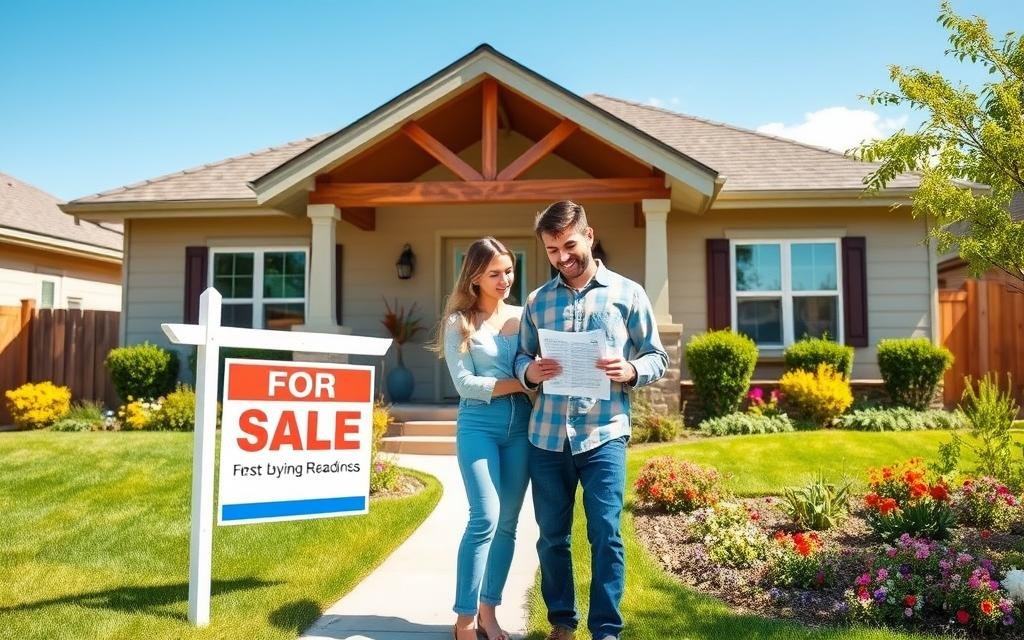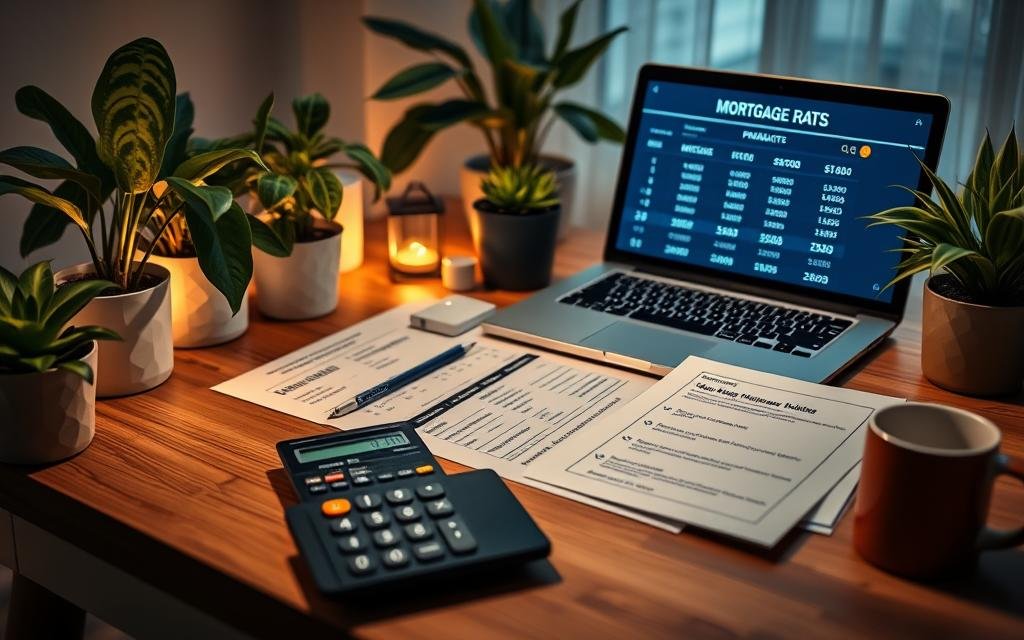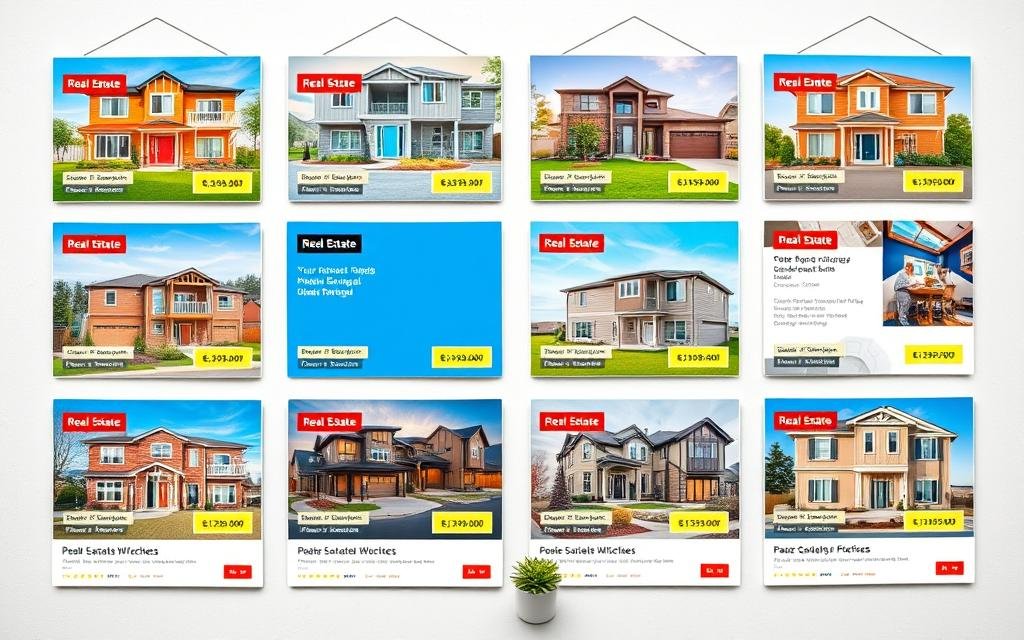Property Listings for First-Time Buyers: Where to Start

Starting our journey to homeownership can seem overwhelming. But don't worry, we're all in this together. With the right help and a solid plan, we can make our dream of owning a home come true.
Finding the right property is the first step. We can look at online property platforms or work with a real estate agent. Knowing what's out there is key. But first, let's make sure we're truly ready for this big step.
Buying a home is more than just finding a place to live. It's about securing our financial future and making a big lifestyle change. We'll look at what makes us ready to buy, like checking our finances and saving for emergencies. With a strong base, we can focus on getting our finances right, exploring mortgage options, and getting pre-approved.
Let's start this journey together, step by step. With knowledge and a clear plan, we'll find the perfect property for our dreams. Are you ready to begin?
- Understanding Your Home Buying Readiness
- Getting Your Finances in Order Before House Hunting
- Property Listings for First-Time Buyers
- Understanding Different Mortgage Options
- The Importance of Mortgage Pre-approval
- Creating a Realistic Housing Budget
- First-Time Buyer Assistance Programs
- Essential Home Features Checklist
- Understanding Closing Costs and Additional Expenses
- Maintaining Your Credit During the Buying Process
- Making a Competitive Offer in Today's Market
Understanding Your Home Buying Readiness
Buying a home is a big financial step. It's key to check if you're ready before starting. Look at your financial health, long-term plans, and savings for emergencies. This ensures a smooth home-buying journey.
Assessing Financial Stability
First, check your financial health. Look at your income, credit score, and savings. Lenders will check these to see if you can get a mortgage. A good credit score and steady income help get better mortgage rates.
Evaluating Long-term Commitment
Buying a home is for the long haul. Think about your job, family plans, and lifestyle. Make sure the home fits your future goals. This helps you make a smart choice for homeownership.
Building Emergency Funds
Having an emergency fund is also important. Save 3-6 months' worth of living expenses. This fund helps with unexpected costs, like repairs or job loss. It's a safety net for homeownership.
By checking your readiness, you're ready for the real estate market. This ensures you find a home that suits your life and finances. Remember, evaluating your finances, commitment, and savings is crucial for homeownership success.
"Buying a home is not just about finding the perfect property; it's about ensuring your financial readiness to take on the responsibilities of homeownership. By taking the time to evaluate your readiness, you're setting yourself up for a successful and stress-free home-buying experience."
Getting Your Finances in Order Before House Hunting
Buying a home is a big deal. It's important to get your finances right before you start looking. This way, you can get better mortgage deals and avoid spending too much.
Let's look at the steps to prepare your finances for buying a home.
Improving Your Credit Score
Your credit score is key for getting a mortgage. Check your credit report for mistakes and work on improving it. Paying bills on time and keeping your credit card balances low can help.
Saving for a Down Payment
The down payment size affects your mortgage and monthly payments. Aim for 20% to avoid extra insurance costs. If 20% is hard, look into FHA loans or down payment help programs.
Budgeting for Additional Expenses
Buying a home means more than just mortgage payments. Think about closing costs, taxes, insurance, and repairs. Renovations can cost a lot, so save extra for surprises.
Improving your credit, saving for a down payment, and budgeting for extra costs will help. This way, you can find a mortgage that fits your budget and goals.
"Before starting to house hunt, it is advised to aim for a house where monthly housing costs should be 25% or less of your monthly take-home pay, to avoid being house poor."
- Rachel Cruze, Financial Expert
Property Listings for First-Time Buyers
First-time buyers have many ways to find homes that fit their needs and budget. You can look online or use local resources. We'll show you how to search and find your dream home.
Online Property Platforms
Websites like Zillow, Realtor.com, and Redfin are great for searching homes. They let you filter listings by what you want. You can see details, prices, and photos easily.
Working with Real Estate Agents
Working with a real estate agent is very helpful for first-time buyers. Agents have access to the MLS, a big database of homes. They can help you find homes, negotiate, and buy.
Local Property Listings Resources
- Community boards and forums have unique listings not found elsewhere.
- Local newspapers and publications give insights into the market.
- Talking to friends and family who bought homes can give you tips and leads.
Using online platforms, agents, and local resources can help you find the right home. You'll have a better chance of finding a home that meets your needs and budget.
| Online Platforms | Real Estate Agents | Local Resources |
|---|---|---|
| Extensive property databases | Access to MLS listings | Community boards and forums |
| Customizable search filters | Guidance through the buying process | Local newspapers and publications |
| Detailed property information | Expertise in negotiation and paperwork | Networking with personal connections |
"Combining online platforms, real estate agents, and local resources can help first-time buyers find the perfect home that fits their needs and budget."
Understanding Different Mortgage Options
As first-time home buyers, we have many mortgage options to choose from. [https://tipslends.com/how-to-buy-a-house-the-complete-guide-for-beginners/]Conventional loans need higher credit scores but have good interest rates. FHA loans are better for those with lower credit, needing only a 3.5% down payment.
VA loans are great for veterans and service members, often with no down payment. USDA loans are for rural property buyers, also with no down payment. Knowing these options helps us pick the best one for our financial situation.
| Mortgage Type | Down Payment | Credit Score Requirements | Key Features |
|---|---|---|---|
| Conventional Loans | 20% or more | Minimum 620 | Competitive interest rates, no mortgage insurance with 20% down |
| FHA Loans | 3.5% or more | Minimum 580 (with 10% down) or 500 (with 10% down) | Lower down payment requirements, more accessible for those with lower credit scores |
| VA Loans | 0% down payment | No minimum credit score | No down payment, no mortgage insurance, available to eligible veterans and service members |
| USDA Loans | 0% down payment | Minimum 640 | No down payment, available for low-to-moderate income buyers in rural areas |
Understanding these mortgage types helps us make a smart choice. Talking to lenders can guide us to the right loan. This ensures a smooth path to buying our home.
"Choosing the right mortgage is a crucial step in the home-buying journey. Understanding your options can help you secure the best financing for your needs."
The Importance of Mortgage Pre-approval
Getting a mortgage pre-approval is key in buying a home. It shows how much you can borrow, helping you find homes you can afford. This step makes buying a home easier, less stressful, and shows sellers you're serious.
Benefits of Getting Pre-approved
Pre-approval has many benefits for buying a home:
- It tells you how much you can borrow, helping you plan your budget.
- It speeds up the closing process, so you can move in faster.
- Sellers prefer pre-approved buyers because they know you're ready to buy.
- You might get to see homes not listed publicly, giving you an edge.
Required Documentation
To get pre-approved, you need to provide some documents:
- Proof of income, like pay stubs or tax returns.
- Bank statements to check if you have enough money for a down payment.
- Your credit report to see if you qualify for good rates and terms.
Pre-approval Timeline
The pre-approval process usually takes a few days to a week. It depends on the lender and your financial situation. Start early to not miss out on good deals in a competitive market.
"Obtaining a mortgage pre-approval is a game-changer in today's housing market. It not only gives you a clear understanding of your budget but also demonstrates your seriousness to sellers, making your offer stand out." - John Smith, Certified Mortgage Advisor
Creating a Realistic Housing Budget
As first-time homebuyers, it's key to make a budget that includes more than just the mortgage. You'll need to think about property taxes, homeowner's insurance, maintenance, and HOA fees. These costs can add up and affect how affordable a home is for you.
Experts say your housing costs should not be more than 28% of your monthly income. This rule helps keep you financially stable and avoids being house-poor. Also, remember your other debts and savings goals, like retirement or student loans, to make sure your housing budget works with your overall finances.
| Expense | Percentage of Gross Monthly Income |
|---|---|
| Mortgage Payment | Up to 28% |
| Property Taxes | Varies by location |
| Homeowner's Insurance | Typically 0.5% - 1% of home value |
| Maintenance and Repairs | 1% - 4% of home value annually |
| HOA Fees (if applicable) | Varies by community |
By planning a budget that covers all costs, you can keep your home affordable. This way, you'll be set for financial success as a first-time homeowner.
First-Time Buyer Assistance Programs
Buying a home for the first time can seem overwhelming. But, there are many programs to help. These include government-backed loans, state-specific programs, and down payment help. They can make buying a home easier and less expensive.
Government-Backed Programs
Federal programs like FHA and VA loans are great for first-time buyers. They often need smaller down payments and have easier credit rules. This makes them more available to more people.
State-Specific Assistance
Many states have their own programs for first-time buyers. For example, the New Jersey Housing and Mortgage Finance offers up to $22,000 in interest-free, forgivable funds. This helps with down payments and closing costs for eligible buyers.
Down Payment Resources
There are many ways to get down payment help. This includes grants, loans that don't need to be repaid, and savings programs. These options are especially useful for those who don't have a lot of savings. They can help buyers get the money they need for their new home.
| Program | Details | Eligibility |
|---|---|---|
| FHA Loans | Government-backed mortgages with low down payments (as little as 3.5%) and flexible credit requirements. | First-time and repeat homebuyers with a minimum credit score of 580. |
| VA Loans | Mortgages for active-duty military, veterans, and eligible spouses, often with no down payment required. | Active-duty military, veterans, and eligible spouses with a valid Certificate of Eligibility. |
| CalHFA MyHome Assistance Program | Provides up to 3.5% of the home's purchase price in down payment and closing cost assistance for first-time homebuyers in California. | First-time homebuyers in California with a minimum credit score of 640 and a maximum household income based on county. |
"The [NJHMFA] programs have been a game-changer for first-time buyers in New Jersey, making homeownership more accessible and attainable."
Using these programs can make buying a home easier and more affordable. With the right help, owning a home is within reach for many.
Essential Home Features Checklist
As first-time home buyers, it's key to focus on what matters most. Look for homes based on location, size, energy efficiency, and storage. A detailed checklist helps you avoid making choices based on things that aren't as important.
Here are the main features to consider when buying a home:
- Location: How close is it to work, schools, shops, and public transport?
- Size: Does it have enough bedrooms and bathrooms? Is the square footage right for you?
- Storage: Are there enough closets, basements, or attics for your stuff?
- Energy Efficiency: Does it save on bills with good insulation, windows, and appliances?
- Parking: Is there a garage, driveway, or easy street parking?
- Potential for Renovations: Can you make it your own with some changes?
By looking at these key features, you can find a home that fits your life now and in the future. A checklist is a great tool for making smart choices and finding your dream home.
| Home Buying Criteria | Key Considerations |
|---|---|
| Location | Proximity to work, schools, amenities, and transportation hubs |
| Size | Number of bedrooms and bathrooms, square footage, and overall living space |
| Storage | Ample closets, basements, or attics for your belongings |
| Energy Efficiency | Insulation, windows, and appliances that can help reduce utility costs |
| Parking | Garage, driveway, or convenient street parking options |
| Potential for Renovations | Opportunities to customize the home to your liking |
"Prioritizing essential home features is the key to finding a property that truly meets your needs and aligns with your long-term goals."
Understanding Closing Costs and Additional Expenses
First-time homebuyers need to know about closing costs and extra expenses. These can add up quickly and affect your budget. It's key to be ready for them.
Closing costs usually range from 3% to 6% of the loan amount. This includes fees for appraisal, title insurance, and attorney services. For a $300,000 loan, you might pay $9,000 to $18,000 in closing costs, plus your down payment.
There are also other costs to think about. These are moving expenses, immediate repairs or updates, and new furniture. Knowing these can help you plan better and avoid surprises at closing.
Breakdown of Closing Costs
| Expense | Average Cost |
|---|---|
| Earnest Money Deposit | 3% of purchase price |
| Property Taxes | Due twice a year (Nov 1 and Feb 1) |
| Title Insurance | Typically paid by seller in Southern California |
| Escrow Fees | 50/50 split between buyer and seller |
| Documentary Transfer Tax | Governmental tax on property transfers in California |
| Lender Fees | Underwriting and loan creation fees |
It's also important to think about ongoing costs like property taxes and insurance. You should also consider maintenance or repairs. Knowing these costs can help you plan better and avoid surprises later.
"Closing costs can be a major financial hurdle for first-time homebuyers, so it's crucial to budget for them accurately. Understanding these expenses will help ensure a smooth and successful homebuying experience."
Maintaining Your Credit During the Buying Process
Buying a home requires careful credit management. As you start this journey, keeping your credit stable is key to getting good mortgage terms. We know it can feel overwhelming, but with a few strategies, you can make it through smoothly.
Don't open new credit lines or buy big things during this time. Lenders will check your credit again before closing, and big changes can affect your loan. Keep your credit use low and pay bills on time to show you're financially responsible.
Being consistent is crucial for credit management. Lenders look for a history of on-time payments and smart money choices. This boosts your mortgage approval chances and shows you're financially stable, which lenders value a lot.
- Avoid opening new credit accounts or making large purchases
- Keep credit utilization low and pay all bills on time
- Maintain a consistent financial record to demonstrate reliability
By focusing on credit management, you're setting yourself up for success. Your careful financial choices will impress lenders and make the closing process easy and stress-free.
"Consistent financial behavior demonstrates reliability to lenders and ensures a smooth closing process."
Making a Competitive Offer in Today's Market
In today's real estate market, making a strong offer is key for first-time buyers. Getting pre-approved for a mortgage can speed up the closing process. Sellers often like this. Also, offering more than the asking price, with the right help from a real estate agent, can make your offer stand out.
Personal offer letters can connect with sellers on an emotional level. A thoughtful letter can make your offer more appealing. Being flexible with terms, like adjusting closing dates or being open to contingencies, can also attract sellers. But, waiving certain contingencies can be risky, so it's wise to talk to a real estate agent first.
Having an experienced real estate agent is vital in a competitive market. They offer valuable insights, guide you through negotiations, and can give you an edge by telling you about new listings early. Increasing your earnest money deposit shows you're serious and can boost the seller's confidence in your offer. By understanding local real estate market trends and planning strategically, you can make an offer that really catches their eye.
If you want to know other articles similar to Property Listings for First-Time Buyers: Where to Start You can visit the category House for Sale.



Deja una respuesta